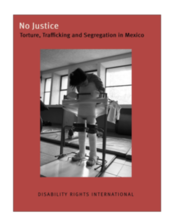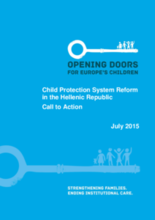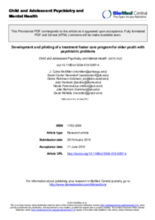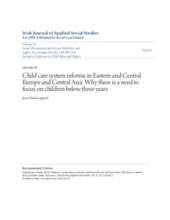Displaying 341 - 350 of 662
This animated video from Lumos, narrated by Lumos founder J.K. Rowling, illustrates the “tragic consequences of orphanage care,” and argues that more can and should be done to support families to care for their children, eliminating the use of institutional care.
This is a recording of a Webinar conducted by Christian Alliance for Orphans on "Replicable Models for Transition to Family-Based Care."
Visionaries, a documentary series on public television in the United States, aired two episodes featuring the work of Disability Rights International (DRI) in uncovering the egregious abuses suffered by children and adults with disabilities living in institutions around the world.
In August 2015, Child Family Health International (CFHI) held a webinar reviewing the situation of children living in residential care facilities around the world.
This report from Disability Rights International (DRI) outlines the findings from a two-year investigation into the treatment of children and adults with mental disabilities in Mexico City, particularly those in the care of state-funded and private residential facilities.
This study investigates the correlation over time between international adoption and institutional care.
This paper presents a policy position which argues that, “as the Greek authorities map out the road to long-term recovery, several key steps to reform the child protection and care system should be taken as a matter of priority.”
This paper reports on the development and piloting of a manualized treatment foster care program in the US designed to step down older youth with high psychiatric needs from residential programs to treatment foster care homes.
This post on the Missions Dilemma website features an article and 30 minute documentary film on the harmful impact of institutionalization on children.
This paper describes the diversified approaches in Eastern and Central Europe and Central Asia to end the placement of children under three in institutions and prevent the separation of children from their families.




